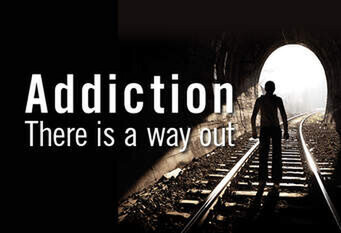If you are like nearly 100% of the people I work with or who contact me about the impact of a loved one in addiction – you are probably expecting this post to be all about why you cannot help your loved one change – after all that is what everyone is telling you when you ask this question!
Before we go any further, I want to make it clear – you can help & support your loved one in their journey toward change – but not by the way that you are trying to do it now.
What DOES NOT work:
Being emotionally reactive
Being driven by ‘fear’, anger, resentment, or any of those other emotions we experience when we have a loved one in addiction
Telling them what to do
Telling them they have a problem
Trying to manipulate or control the situation toward the outcome you want them to achieve for them….
Threats, shaming, blaming, guilt tripping, ‘shocking’ them into reality and the list goes on….
There are five steps toward being able to be proactive in helping your loved one toward change…
STOP – STEP BACK – get yourself well first, do the work so you are no longer in turmoil, you can have fun again, you make decisions based on what is right for you (and that does not mean you have to abandon your loved one)
Get the facts – not the street ‘gossip’, the traditional messages others want you to believe are not helping. Things like ‘you cannot help your loved one’, ‘your loved one is in denial’, ‘you need to wait until they are ready to change’, ‘you need to stop enabling them’, and the list goes on & on with no hope just more desperation.
Be educated and supported so you know the facts about your loved one as an ‘Addict’, so you can reflect on your loved one and their behaviours through the predictable Cycle of Addiction, you know what ‘Change Takes’ and can be proactive to match where your loved one is at aright now, and you know the journey toward a successful long-term Recovery.
You need to also be effective in influencing change, even when your loved one does not agree they have a problem. To be effective you need to know how to recognise Windows of Opportunity and to be able to plant intentional highly effective ‘Seeds’ in these times. Seeds that will germinate over time and grow toward change and successful recovery.
The most important thing you need to do is change your relationship with your loved one – shift from being driven by your emotionally reactive heartfelt connection of ‘mother to a daughter who is using alcohol or drugs, or a father of a daughter or son using, or the wife of a husband, or husband of a wife who are using. The reality is approaching your current situation from this relationship stand point is what is destroying you and it is not creating any sustainable change for anyone!
Growing your relationship into being the ‘parent to an Addict’, or ‘spouse to an Addict’, ‘grandparent to an Addict’ and so the list goes on – creates a space for you to feel better, be able to cope, and to be able to do what works in influencing change. Once you are in this space you can then learn what effective influence toward change looks like and how it all works. You are now in a space where you feel empowered and confident because you know what to do, when to do it and how to do it.
If you would like to know more about how to get here then contact Rosemary today, she is waiting to help you:
Click Here to Book a 45-minute Free Discovery Call with me




